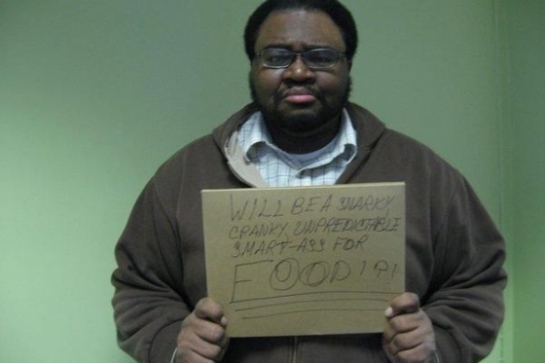I’m not sure if there is a point to Unity if two of the biggest groups have decided to abandon whatever sense of unity might exist among minority journalists.
When the black journalists left the group and weren’t at the convention last year I was dismayed. But I thought maybe Unity could still survive, especially if there was even a remote possibility of NABJ returning.
Now that the Hispanic journalists of NAHJ have pulled out, I think it’s really over.
Here was NAHJ President Hugo Balta’s message on its website this week:
“As I’ve repeatedly stated NAHJ is open to working with UNITY and look forward to discussing proposals that meet our mutual [associations’] mission.
“We wish UNITY good luck in their future endeavors.”
Sound like the kiss-off speech you get when you’re fired or laid off?
(Haven’t experienced that ever? Then you’re really a protected minority).
If two of the biggest groups aren’t represented, we have a different kind of “Unity” that is no longer unified, diverse, nor even necessary.
A group that includes AAJA, the Asian American journalists group, and the two smallest minority journalism groups from the LGBT and Native American communities, represents an organization with diminished numbers, resources, and power.
We should have figured something like this would happen when the tag line was changed last year from “Journalists of Color” to “Journalists for Diversity.” Diversity? Or some reasonable facsimile?
Diversity without the two biggest minority groups in the organization is just a joke.
It’s also disheartening, though not surprising, to see business and financial reasons come up as the wedge that divides the different groups over the common goal of diversity.
Of course, joining a bigger group makes perfect sense to the minority of minority journalism groups representing gay, lesbian, bisexual and transgender individuals, and Native Americans.
But how can Unity make sense for everyone else?
What kind of formula would lure back NABJ, NAHJ?
What kind of arrangement is needed to keep even AAJA members interested?
The current president Paul Cheung has just sent an e-mail to AAJA members, saying that since July the remaining alliance members are working to restructure Unity to make it “more nimble, flexible, and financially sound.” Furthermore, it says AAJA has taken a leadership role in coming up with solutions.
I’ll be open to whatever the remaining Unity reps come up with. But if it doesn’t compel NABJ or NAHJ to re-join, then it may not be good enough.
The group certainly shouldn’t be called Unity.
I’ve been to every Unity convention and believe in the mission of bringing the power of all the organizations together to make our case for diversity together.
But what good is a new and nimble Unity without the blacks and Hispanics?
Do we really need Unity Lite?
(Clarification: NAHJ as of August had 1,279 members and was the second largest Unity partner. AAJA was the largest with 1,597 members in August. NABJ withdrew from Unity in 2011. It has nearly 3,000 members, according to Richard Prince’s Journalisms/Maynard Institute website).
See other posts and like us on Facebook: http://www.facebook.com/emilguillermo.media
ADDENDUM: (10/24/13, 11:24 am PDT)
Without the blacks and Hispanics, you essentially have a GAAJANA (Gay Asian American Journalists Association/Native Americans). It would be a different organization, just not “Unity.” And probably not worth it to organizations to take time from their own specific concerns. Too bad the formal idea has already been built and established, but there’s no will to do what’s right for all. No one uses the good of the people argument here.
A “Unity” without all the groups is really like a Congress without 50 states. But Congress has its problems with gridlock and “doing the right thing.” Why did we expect anything different with our journalism organizations?
UPDATE (10/24/13 11:43 am PDT )
Disappointment but willingness to let go from a significant early member of Unity, who compared the situation to marriage, essentially saying sometimes it doesn’t work out and you move on. That’s a sign that the old Unity is really gone forever. Anything from here on will be brand new and be very different.
Initially, I called it Unity Lite. But it’s really a kind of “Post-Racial” Unity.
So here’s an idea:Why don’t we just try to diversify existing mainstream groups like SPJ, RTNDA, and the like instead of creating a brand new Unity?

